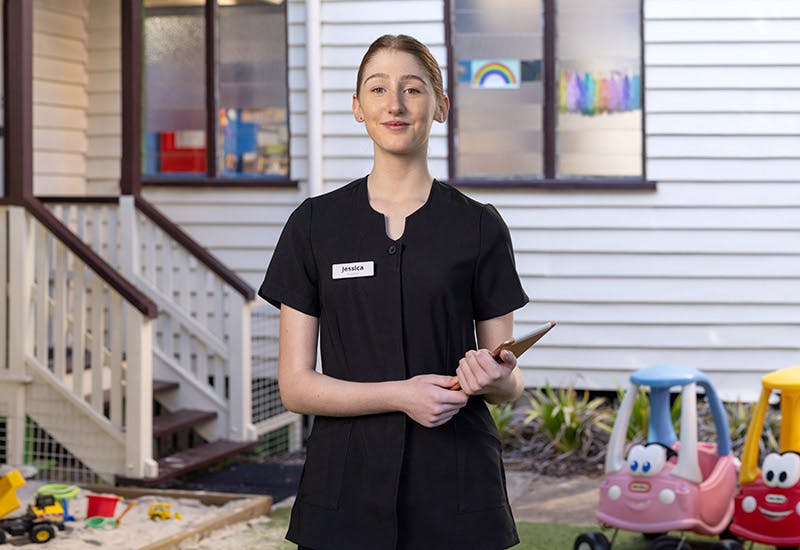Explore our blog articles

Study tips for Allied Health and Individual Support students
Boost your study success with practical tips for students completing a Certificate III in Allied Health Assistance. Learn how to manage time, placements and online study.

What is a home care worker?
Find out what a Home Care Worker does, who they support, the skills required, and how to get started in this growing career with a Certificate III in Individual Support (Ageing and Disability).

What is a Disability Support Worker?
Discover what a Disability Support Worker does, their duties, where they work, and how to start this rewarding career. Learn about qualifications, career growth and NDIS roles.

You've been the carer, now become the professional
Learn how to turn your informal care experience into a professional role with a Certificate III in Individual Support. Discover career paths, FAQs, and training options.

What Makes a Great Support Worker?
Discover the support worker skills and personal traits employers value most and how the right training can launch your caring career in Australia’s fastest-growing sector.

What is a Personal Care Worker?
Learn what a Personal Care Worker does, their key responsibilities, required skills, and how to start a career in aged or disability care with flexible training options.

How to Become a Disability Support Worker
Learn how to become a Disability Support Worker in Australia. Find out about qualifications, skills, job options, and how to start this rewarding career.

What is an Aged Care Worker?
Discover what an Aged Care Worker does, where they work, the skills required, and how to get started in this meaningful and high-demand career.

National Child Protection Week: student action guide for future ECEC educators
National Child Protection Week: a student guide to child-safe practice in ECEC with seven practical actions and links to Cert III and Diploma pathways.

Essential business & leadership skills for modern managers
Master the business leadership skills modern workplaces crave, from strategic thinking to people management, with flexible, nationally recognised training.

Top Dental Assistant Skills in Demand
Build the dental assistant skills Australian clinics need and launch a hands-on career with strong demand, steady pay and quick training options.

Allied Health Assistant skills employers need
Discover the allied health assistant skills physio and OT teams rely on and how nationally recognised study can launch your healthcare career.
Proud member of

© Foundation Education | RTO Number 22557
